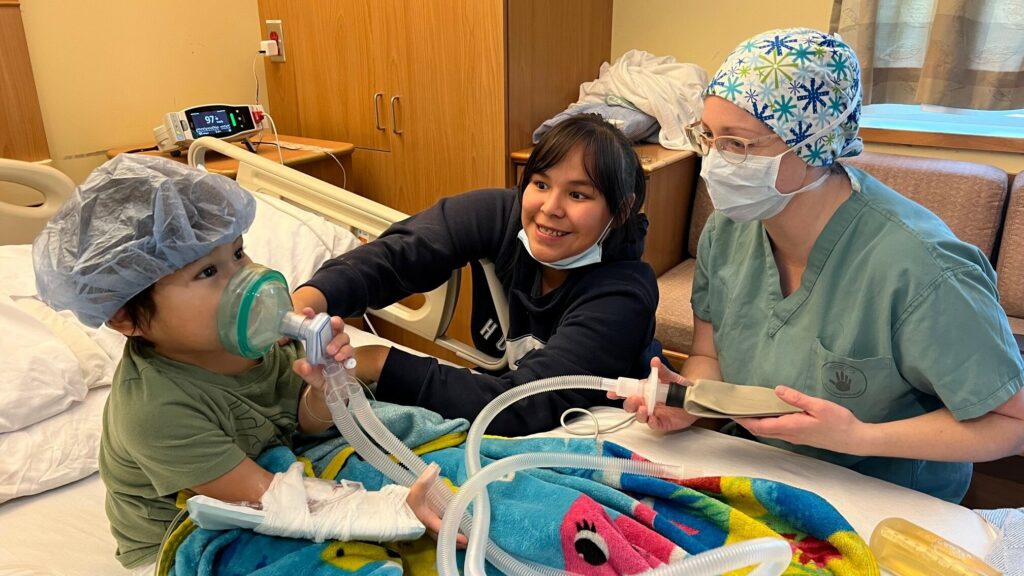Perioperative Anxiety in Children: Harnessing the Power of Virtual Reality Technology
Perioperative anxiety, the fear and apprehension experienced by children before undergoing surgery, can significantly impact their well-being and recovery. Studies indicate that up to 75% of children may experience perioperative anxiety, a statistic that underscores the importance of effective interventions to alleviate their distress. In recent years, virtual reality (VR) technology has emerged as a promising tool for diverting children’s attention from difficult situations and reducing anxiety levels during medical procedures. In this article, we explore the profound impact of perioperative anxiety on children and delve into the innovative use of virtual reality technology as a therapeutic intervention.
Understanding Perioperative Anxiety in Children:
Perioperative anxiety encompasses a range of emotions, including fear, worry, and stress, experienced by children in the lead-up to surgery. The unfamiliar hospital environment, separation from parents, and concerns about pain or discomfort contribute to heightened anxiety levels among pediatric patients. Left unaddressed, perioperative anxiety can lead to negative outcomes, such as increased pain perception, delayed recovery, and heightened stress for both children and their families.
The Role of Virtual Reality Technology:
Virtual reality technology offers a captivating and immersive experience that can effectively distract children from their surroundings and reduce anxiety levels during medical procedures. By transporting children to virtual environments filled with engaging visuals and interactive experiences, VR technology creates a sense of presence and immersion that captivates their attention and promotes relaxation. Whether exploring fantastical realms, embarking on virtual adventures, or engaging in interactive games, children are able to temporarily escape the stressors of the hospital environment and focus on positive experiences.
Benefits of Virtual Reality Therapy for Perioperative Anxiety:
Research has shown that virtual reality therapy can have a profound impact on reducing perioperative anxiety in children. By providing a pleasant and engaging distraction, VR technology helps children cope with the anxiety and discomfort associated with medical procedures. Moreover, the immersive nature of virtual reality experiences can trigger the release of endorphins and promote a sense of calm and well-being, further enhancing the therapeutic benefits of VR therapy. Additionally, virtual reality technology can empower children by giving them a sense of control over their environment and allowing them to actively participate in their own care.
Implementing Virtual Reality Therapy in Pediatric Healthcare Settings:
Integrating virtual reality therapy into pediatric healthcare settings requires careful planning and collaboration between healthcare providers, technologists, and child life specialists. Hospitals and clinics can create dedicated VR therapy programs or partner with organizations specializing in pediatric virtual reality interventions. Child life specialists play a crucial role in preparing children for virtual reality experiences, providing guidance and support throughout the process. Additionally, healthcare providers can customize virtual reality content to suit the preferences and needs of individual children, ensuring a personalized and therapeutic experience.
Perioperative anxiety poses significant challenges for pediatric patients undergoing surgery, impacting their emotional well-being and recovery outcomes. Virtual reality technology offers a promising solution for alleviating perioperative anxiety in children by providing immersive and engaging distractions during medical procedures.
By harnessing the power of virtual reality therapy, healthcare providers can enhance the patient experience, reduce anxiety levels, and promote positive outcomes for pediatric patients undergoing surgery. As technology continues to advance, virtual reality therapy holds tremendous potential as a transformative tool in pediatric healthcare settings, offering hope and healing to children facing medical challenges.
Views: 98

